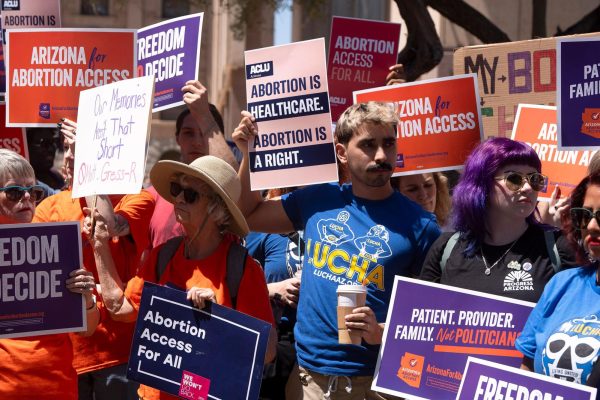In a decision that has reignited the contentious debate over reproductive rights, the Arizona Supreme Court has reinstated an almost complete ban on abortions in the state. This ruling has sparked fervent reactions from both sides of the abortion debate and has significant implications for women’s access to reproductive healthcare in Arizona.
The ban, initially passed by the Arizona Legislature in 2011, prohibits abortions after 15 weeks of pregnancy, with exceptions only in cases of medical emergencies. However, it was blocked by lower courts, citing the precedent set by Roe v. Wade, which protects a woman’s right to choose abortion before fetal viability, typically around 24 weeks. The recent decision by the Arizona Supreme Court overturns these lower court rulings, allowing the ban to take effect.

Supporters of the ban argue that it is a crucial step in protecting the rights of the unborn and promoting a culture of life. They contend that abortions after 15 weeks represent a moral and ethical dilemma and should be restricted to cases of medical necessity. Proponents of the ban often cite concerns about fetal pain and the sanctity of human life as reasons for their support.
On the other hand, opponents of the ban view it as a direct attack on women’s reproductive rights and bodily autonomy. They argue that it severely limits access to safe and legal abortion care, forcing women to either seek out unsafe procedures or carry unwanted pregnancies to term against their will. Critics also point out that the ban disproportionately affects marginalized communities, who may already face barriers to accessing healthcare services.
The reinstatement of the ban in Arizona comes at a time when reproductive rights are under increasing scrutiny across the United States. With the conservative majority on the U.S. Supreme Court, there is speculation that longstanding precedents like Roe v. Wade could be revisited or overturned, potentially paving the way for more restrictive abortion laws at the state level.

In response to the Arizona Supreme Court’s decision, reproductive rights advocates have vowed to continue fighting for abortion access. Organizations such as Planned Parenthood and the American Civil Liberties Union (ACLU) have condemned the ruling and pledged to support legal challenges to protect women’s rights.
The impact of the ban on abortion access in Arizona remains to be seen, but it is likely to have far-reaching consequences. Women in the state may face increased hurdles in obtaining abortion care, leading to potential health risks and infringements on their autonomy. Additionally, the decision sets a precedent that could embolden other states to enact similar restrictions, further eroding reproductive rights nationwide.
As the debate over abortion rights continues to intensify, it is clear that the issue remains deeply polarizing and fraught with complex legal and ethical considerations. The Arizona Supreme Court’s decision to reinstate the ban on almost all abortions is a stark reminder of the ongoing battle for reproductive freedom and the need for vigilance in protecting women’s rights.



